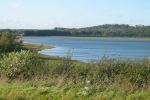It was so important to see Remembering Srebrenica UK at #CPC16. We must never forget how easily hate and poor education lead to mass murder and there is too big a risk that we will forget that genocide happened in Europe only 21 years ago.
One of the issues I raised at the event was the continued silence around the systematic and widespread rape of women during the genocide in Srebrenica and Bosnia. It is estimated over 20,000 Bosnian women and girls were raped. By maintaining a silence and focusing largely on the murder of the innocent men and boys, we reinforce the brave survivor's trauma. We must find a way to talk about both because it is through compassion and dialogue, led by the survivors, that healing can take place.
We discussed how to prevent future crisis and bloodshed as happened in Bosnia. Looking at UK intervention in crises internationally, I agree with Ruth Davidson MSP that we have learnt the wrong lessons from the Iraq war. Specifically I believe it has frozen us, made us unable to intervene internationally to take action and save lives, for example in Syria and the vote by Parliament not to intervene militarily in Syria. Since that vote another 300,000 Syrians have died, and I believe it was the wrong decision not to intervene.
We must learn the lessons from the past, but not be frozen by them. We must regain what Alistair Burt MP called the "spark of moral obligation" to act when a human catastrophe is taking place.
We also talked about how the UN must look at how it finds a way to end conflicts when permanent members of the security council choose to prolong the suffering as is happening in Syria at the moment with Russia choosing to prop up the Assad regime and enable them to continue to slaughter the Syrian people in Aleppo. Whilst there is no clear answer here, the UK should use its influence at the UN to push for consideration of this pressing issue.
This event meant so much to me because thanks to this organisation, last year I had the privilege to visit Bosnia and Srebrenica with brave members of our Armed Forces who had served in the crisis there. It was deeply humbling, and an honour to accompany these men as they returned to a country where they last served in a war zone, defending civilians from barbaric snipers.
We met with survivors of the genocide and the mothers of Srebrenica, and I was left in no doubt of the importance of ensuring this never happens again, and that I will do all I can to personally prevent another crisis like this.
What I will remember most is not the graphic violence, the pain, or the cold and cruel calculations involved in hiding their crimes, that so many people can never forget. But the absolute horror of how easily a group of individuals identified, demonised, dehumanised and denigrated a community. How religious hatred and racism can be constructed and directed to the most evil ends.
The enablement of genocide.


